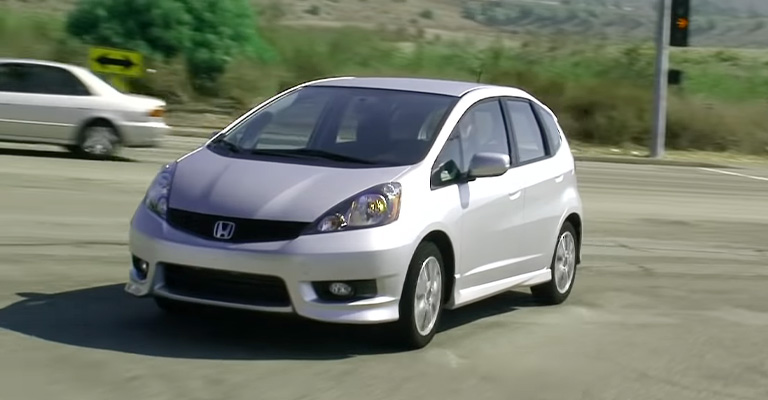The Honda Fit is a subcompact car that has been in production since 2001. It is known for its fuel efficiency and versatility, with a spacious interior and a wide range of available features. However, like any car, the Honda Fit is not immune to problems.
Some common issues that have been reported by Honda Fit owners include transmission issues, electrical problems, and engine problems. In this article, we will discuss some of the most common problems that have been reported with the 2011 Honda Fit.
It is important to note that not all Honda Fit models will experience these issues, and many problems can be resolved with proper maintenance and repair. However, understanding common issues can help you to be aware of potential problems and take steps to prevent them.

2011 Honda Fit Problems
One of the most common problems reported by Honda Fit owners is the check engine light coming on and the car stuttering or jerking while driving. This can be caused by a variety of issues, including problems with the engine, transmission, or emissions system.
The check engine light is a warning system that indicates there is a problem with your vehicle’s engine or emission control system. When the check engine light comes on, it means that the car’s onboard diagnostic system has detected an issue that needs to be addressed.
Depending on the severity of the issue, the check engine light may come on as a solid or flashing light, or it may blink or flash rapidly.
If you are experiencing stuttering or jerking while driving, it could be caused by a problem with the engine or transmission. This could be due to issues with the ignition system, fuel delivery, or other mechanical problems.
It could also be caused by a problem with the transmission, such as worn gears or a faulty transmission control module.
If you are experiencing either of these issues with your 2011 Honda Fit, it is important to have the car checked by a mechanic as soon as possible. Ignoring these issues can lead to more serious problems and potentially dangerous driving conditions.
Possible Solution
| Problem | Possible Solution |
| Check engine light and stuttering while driving | Have the car checked by a mechanic to diagnose the issue. Possible causes could include problems with the engine, transmission, or emissions system. |
| Transmission slipping or grinding | Have the transmission checked by a mechanic. Possible causes could include worn gears, a faulty transmission control module, or low transmission fluid. |
| Engine misfiring or stalling | Have the car checked by a mechanic to diagnose the issue. Possible causes could include problems with the ignition system, fuel delivery, or other mechanical problems. |
| Noise from the suspension or steering system | Have the suspension and steering system checked by a mechanic. Possible causes could include worn or damaged components, such as ball joints, tie rod ends, or control arm bushings. |
| Electrical problems, such as issues with the radio | Have the electrical system checked by a mechanic. Possible causes could include a faulty wiring harness, a damaged electrical component, or a problem with the car’s computer system. |
2011 Honda Fit Recalls
| Recall Number | Issue | Date Issued | Models Affected |
| 19V500000 | Newly Replaced Driver’s Air Bag Inflator Ruptures During Deployment Spraying Metal Fragments | Jul 1, 2019 | 10 |
| 19V502000 | Newly Replaced Passenger Air Bag Inflator Ruptures During Deployment Spraying Metal Fragments | Jul 1, 2019 | 10 |
| 19V378000 | Replacement Passenger Frontal Air Bag Inflator Improperly Installed During Previous Recall | May 17, 2019 | 10 |
| 18V661000 | Passenger Air Bag Inflator Ruptures During Deployment Spraying Metal Fragments | Sep 28, 2018 | 9 |
| 18V268000 | Front Passenger Air Bag Inflator Potentially Installed Improperly During Replacement | May 1, 2018 | 10 |
| 18V042000 | Passenger Air Bag Inflator Ruptures During Deployment Spraying Metal Fragments | Jan 16, 2018 | 9 |
| 17V545000 | Replacement Air Bag Inflator For Previous Recall May Have Been Improperly Installed | Sep 6, 2017 | 8 |
| 17V030000 | Passenger Air Bag Inflator Ruptures During Deployment Spraying Metal Fragments | Jan 13, 2017 | 9 |
| 16V346000 | Passenger Frontal Air Bag Inflator Ruptures On Deployment | May 24, 2016 | 9 |
| 16V061000 | Driver’s Frontal Air Bag Inflator Ruptures And Sprays Metal Fragments | Feb 3, 2016 | 10 |
| 20V770000 | Drive Shaft Fractures | Dec 11, 2020 | 3 |
Recall 19V500000:
The driver’s air bag inflator may rupture during deployment, spraying metal fragments into the vehicle. This can cause serious injury or death to the vehicle occupants.
Recall 19V502000:
The passenger air bag inflator may rupture during deployment, spraying metal fragments into the vehicle. This can cause serious injury or death to the vehicle occupants.
Recall 19V378000:
The passenger frontal air bag inflator may have been improperly installed during a previous recall. This can cause the air bag to deploy improperly in the event of a crash, increasing the risk of injury.
Recall 18V661000:
The passenger air bag inflator may rupture during deployment, spraying metal fragments into the vehicle. This can cause serious injury or death to the vehicle occupants.
Recall 18V268000:
The front passenger air bag inflator may have been improperly installed during replacement. This can cause the air bag to deploy improperly in the event of a crash, increasing the risk of injury.
Recall 18V042000:
The passenger air bag inflator may rupture during deployment, spraying metal fragments into the vehicle. This can cause serious injury or death to the vehicle occupants.
Recall 17V545000:
The replacement air bag inflator for a previous recall may have been improperly installed. This can cause the passenger frontal air bag to deploy improperly in the event of a crash, increasing the risk of injury.
Recall 17V030000:
The passenger air bag inflator may rupture during deployment, spraying metal fragments into the vehicle. This can cause serious injury or death to the vehicle occupants.
Recall 16V346000:
The passenger frontal air bag inflator may rupture during deployment, spraying metal fragments into the vehicle. This can cause serious injury or death to the vehicle occupants.
Recall 16V061000:
The driver’s frontal air bag inflator may rupture during deployment, spraying metal fragments into the vehicle. This can cause serious injury or death to the vehicle occupants.
Recall 20V770000:
The drive shaft may fracture, causing a sudden loss of drive power or the potential for the vehicle to roll away if the parking brake has not been applied. Either condition can increase the risk of a crash or injury.
Problems and Complaints Sources
https://repairpal.com/2011-honda-fit/problems
https://www.carcomplaints.com/Honda/Fit/2011/
All Honda Fit years we talked –




